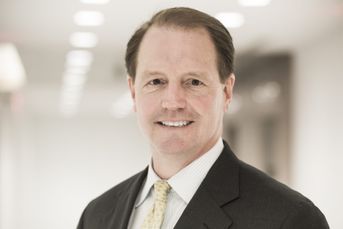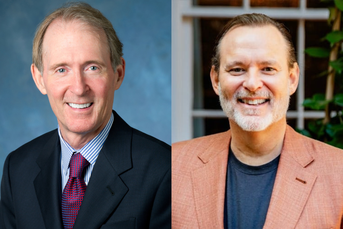Risk of dissatisfied advisers taking flight is rising: J.D. Power

Ongoing discontent, worsened by the pandemic and tech shortfalls, has resulted in 15% of wirehouse advisers and 7% of independent advisers being 'at risk' of exiting their firms in the next two years.
Mick Jagger’s financial adviser can’t get no satisfaction, either.
Ongoing dissatisfaction among advisers has been worsened by the pandemic and technology shortfalls, as well as age and lengthy tenures, resulting in 15% of wirehouse advisers and 7% of independent advisers being “at risk” of leaving in the next two years, according to the J.D. Power U.S. Financial Advisor Satisfaction Study released Wednesday.
“With the average age of a financial adviser climbing to 57 this year, wealth management firms that want to continue to grow must do more than just manage adviser attrition rates; they also need to actively create adviser brand evangelists who will attract the next generation of talent,” Mike Foy, senior director of wealth and lending intelligence at J.D. Power, said in a statement.
The study found that investing in technology, competitive products and firm culture helps build adviser advocacy, even as overall discontent among the ranks is on the rise.
Among advisers who are classified as brand evangelists, or those with the highest levels of satisfaction and loyalty to their firms, 91% say the technology offered by their firm has improved over the past two years. Along those lines, 79% say their firm offers competitive products and services and 74% say their firm’s corporate leadership fosters a strong culture, according to the J.D Power survey.
“Right now, many firms are missing the mark on developing that level of adviser engagement, but there are some clear drivers that need to be in place for it to happen,” Foy added. “Notably, firms that are making the right investments in technology, effective marketing support, competitive products and services and have a strong top-down corporate culture are significantly outperforming the competition when it comes to adviser satisfaction and advocacy.”
While overall satisfaction among independent advisers is relatively consistent across advisers at all levels of tenure, the study revealed it declines significantly among employee advisers based on how long they’ve worked in the industry. Overall satisfaction comes in at 741 on a 1,000-point scale among employee advisers in their first 10 years of tenure, but falls to 689 among midcareer employee advisers and to 658 among those with a tenure of 20 years or more. That represents a huge risk as significant assets could leave the firm if an experienced adviser departs.
Edward Jones ranked highest in overall satisfaction among employee advisers with a score of 876 on the 1,000-point scale.
“Our firm is built on relationships, and we invest deeply in them,” said Ken Cella, head of branch development at Edward Jones. “Our nearly 19,000 financial advisers are human-centered in their approach and in more communities than anyone in our industry. These unique differentiators enable them to serve, guided by our purpose, values and mindsets that are the hallmarks of our first century in business.”
“As our stakeholders change in unprecedented ways: what they need, what they value, and what it will take to help them achieve financially what is most important,” Cella added. “We’ll continue to offer our financial advisers flexibility, choice and support to serve their clients and their communities.”
Commonwealth scored highest in overall satisfaction among independent advisers.
J.D. Power’s U.S. Financial Advisor Satisfaction Study looks at six factors: compensation; leadership and culture; operational support; products and marketing; professional development; and technology. The 2022 study reflects responses from 3,039 employee and independent financial advisors and was fielded from January through May 2022.
Finally, the study also illustrated that advisers, satisfied or not, generally want to return to the office. A majority (62%) of the respondents said they preferred to work in the the office either most of the time (38%) or full-time (24%), according to the survey. Overall satisfaction scores were highest among advisers currently working in the office full time (791), followed by those who are working in the office most of the time (778).
Learn more about reprints and licensing for this article.








